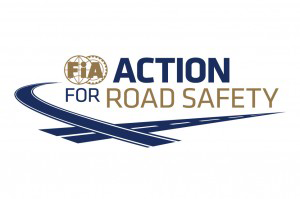
- The Guardian
Life and death on the world's most dangerous roads

More than 1.2 million people are killed on the road every year – and more than 20 million are injured, according to a World Health Organisation report published on Thursday.
This makes road accidents the eighth leading cause of death globally – comparable in impact to communicable diseases such as malaria – and the WHO estimates it could rise to fifth in the rankings by 2030 unless action is taken.
Three-quarters of all road deaths are among young men – and road accidents are the leading cause of death for 15- to 29-year-olds.
The WHO's Global Status Report on Road Safety 2013 found that 27% of global traffic deaths are among pedestrians and cyclists – vulnerable road users who have been neglected in transport and planning policies. In low- and middle-income countries the figure is closer to 33%; in some, it is as high as 75%.
Margaret Chan, director general of the WHO, said the number of road deaths was "unacceptably high", while injuries "take an enormous toll on individuals and communities as well as on national economies". Low-income families are hardest hit by medical costs and lost wages.
Dealing with deaths and injuries on roads costs billions of dollars each year (pdf), taking an estimated toll on low- and middle-income countries of 1-2% of economic output – a total across those countries of more than $100bn a year. Middle-income countries, particularly in Africa, where car use is rising, have been disproportionately affected, said the WHO.
The global road traffic death rate is 18 per 100,000 people. Middle-income countries have the highest rate – 20.1 – while high-income countries have the lowest, at 8.7. Regionally, the lowest rate is in Europe (10.3 per 100,000) and the highest in Africa (24.1 per 100,000).
"Road traffic injuries are increasing, notably in low- and middle-income countries, where rates are twice those in high-income countries. This is partly attributable to the rapid rate of motorisation in many developing countries without a concomitant investment in road safety strategies and land use planning," said the report.
The WHO named six countries that have steadily reduced road deaths – Australia, Canada, France, the Netherlands, Sweden and the UK. It said 88 countries reduced deaths on the road between 2007 and 2010 (42 high-income, 41 middle-income and five low-income countries), while 87 experienced increases. The WHO refused to name the countries where rates had increased.
The report found that the number of annual deaths on the world's roads was more or less stable, at 1.24 million, but said that – given the number of registered vehicles has risen 15% since its last report in 2009 – more people would have died without the action already taken to reduce risk in five key areas.
World governments declared 2011-20 a decade of action for road safety and the WHO has been urging countries to tighten legislation on speed, drink-driving, use of helmets, seatbelts and child restraints.
"Although the aim of reducing the annual burden of road traffic deaths has yet to be realised, the lack of increase suggests interventions to improve global road safety may have mitigated deaths that would otherwise have occurred," the report said.
The road safety study found that only 28 countries, covering 7% of the world's population, have adequate laws in place – and this number remains unchanged from the last report. Over the past five years, 35 countries have passed new laws or changed existing laws – but even where laws do exist, their enforcement is inadequate, the report found.
The report also calls for standardised data collection on road safety, injuries and deaths – and highlights the need to improve post-crash care.
"Real progress has been made towards improving road safety and saving lives, but what this report shows is that faster and more concerted action is needed to prevent many more lives being needlessly lost on the world's roads," the authors said.























